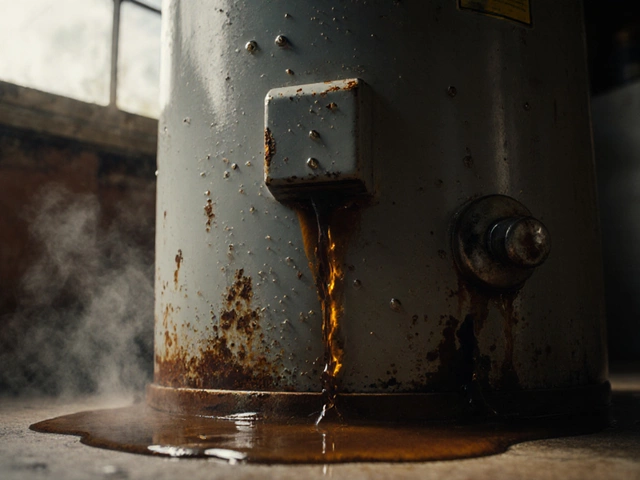Got a kitchen fan that’s getting sluggish or making weird noises? You’re not alone. Most homeowners ignore their extractor fan until it quits, then they face steamy cabinets and lingering cooking smells. The good news? A clean fan works like new, and you can fix many problems yourself without calling a pro.
Every time you fry, bake, or boil, grease and moisture settle on the fan blades and the vent duct. Over time that build‑up slows airflow, makes the motor work harder, and can even cause overheating. The result is higher electricity bills and a fan that smells like burnt food. A quick clean every few months restores performance, cuts noise, and extends the motor’s life by years.
1. Gather the basics. You’ll need a screwdriver (usually Phillips), a soft brush or old toothbrush, a drop cloth, a vacuum with a brush attachment, and a mild dish‑soap solution. If you plan to replace the fan, have the new unit on hand – most models are the same size as the old one.
2. Turn off power. Safety first: switch off the circuit breaker for the kitchen or unplug the fan if it has a plug. No one wants a surprise shock while scrubbing.
3. Remove the cover. Most extractor fans have a metal or plastic grill held by clips or screws. Pop the grill off, then set it on the drop cloth. If it’s greasy, soak it in warm, soapy water for a few minutes before scrubbing.
4. Clean the blades. Use the brush to loosen any crusty grease on the blades and the motor housing. A vacuum with a brush attachment can suck up loose debris before you wipe. Wipe everything down with the soapy cloth, then dry with a clean towel.
5. Check the motor. Look for dust buildup around the motor vents. A quick vacuum can clear that out. While you’re at it, spin the motor by hand – it should turn freely. If it feels gritty or stuck, the motor may need professional attention.
6. Reassemble. Put the grill back, secure any screws, and restore power. Run the fan on high for a minute to make sure airflow is smooth.
7. When to replace. If the fan still rattles, makes a humming sound, or won’t start after a thorough clean, it’s time for a new unit. Most kitchen fans are priced between £30‑£80 and can be swapped in under an hour.
8. Install the new fan. Align the new fan with the existing mounting holes, screw it in, reconnect any wiring (usually a simple three‑wire plug), and snap the grill back on. Turn the power on and test.
Regular care takes less than ten minutes a month, but the payoff is a fresher kitchen and a quieter home. If you ever feel unsure about the wiring, give a qualified electrician a call – it’s better to be safe than sorry.
Bottom line: keeping your kitchen fan clean and checking it often saves money, stops nasty smells, and keeps your cooking space comfortable. Grab a brush, follow these steps, and you’ll have a fan that works like the day it was installed.

Extractor fans are a lifesaver when it comes to clearing out steam, smoke, and nasty odors, but many people forget they actually need a little love now and then. This article cracks open the question of whether extractor fans need maintenance, and if so, what kind and how often. We'll cover quick tips, warning signs, and busted myths around fan care. Get the straightforward facts (and a few surprises) about keeping your fan working its best. No nonsense, just super practical info you can use right now.

Get to know the four appliances that no modern home can do without, why they matter, and how to keep them working smoothly. Discover easy maintenance tips, signs of trouble, and smart ways to save money on repairs. If you want your home to run without a hitch, paying attention to these basics is a must. This article makes home appliance care straightforward and stress-free. No fluff, just practical advice you can actually use.

Most water heaters fail due to tank corrosion, heating element burnout, or sediment buildup. Learn the top failure points and how to spot them early to avoid costly repairs or floods.

Boiler servicing is an essential aspect of home maintenance that ensures safety and efficiency. While it might seem tempting for homeowners to attempt servicing their own boilers, it's crucial to understand the complexities and risks involved. This article explores whether boiler maintenance can be a DIY project, providing key tips and insights. It offers guidance on what aspects are safe to handle on your own and when to call in a professional.

This article breaks down what an appliance standard really is and why it matters when you’re buying or servicing home appliances. You’ll learn about the rules that keep appliances safe and efficient, plus tips for spotting compliant models. It explains how standards affect your bills and the planet. Real-world examples make it clear and easy to understand. Use this guide to make smarter choices about your appliances.

Stuck with a broken boiler and a cold house? This guide shares quick, practical steps to keep your home warm without a working boiler. Learn about safe heating alternatives, ways to trap heat, and smart tricks for getting through chilly nights. Find out what to avoid, when to call a professional, and how to prep for future breakdowns. Perfect for homeowners who want to stay safe and comfortable during a boiler emergency.